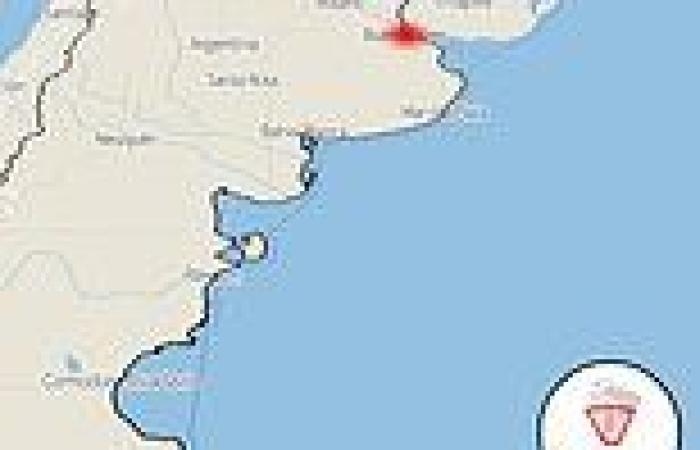Deja flu? Alert over spread of mystery pneumonia 'that has sickened dozens of ... trends now
A mystery respiratory illness has hospitalised dozens of people in Argentina in an outbreak that shares eerie similarities with Covid's arrival.
Sixty patients have been sickened with 'severe atypical pneumonia' in the capital, Buenos Aires.
An alert about the cluster of cases was last night circulated via an international public health surveillance system.
Covid was brought to the attention of the world in late 2019 as a result of the same database, called ProMed.
Beijing officials sounded the alarm over an 'undiagnosed viral pneumonia' outbreak in Wuhan, which would later transpire to be the pandemic's 'ground zero'.
Last night's alert, submitted anonymously 'via an individual known to ProMed', said: 'In the past 30 days, there appears to have been an increase in severe atypical pneumonia requiring critical care in Buenos Aires.
'The affected individuals are mostly young people without major risk factors.'
Patients have required mechanical ventilation to help them breathe.
No official statements have been made by Argentinian officials, meaning details on what the actual illness is are scarce.
But the alert suggested a






